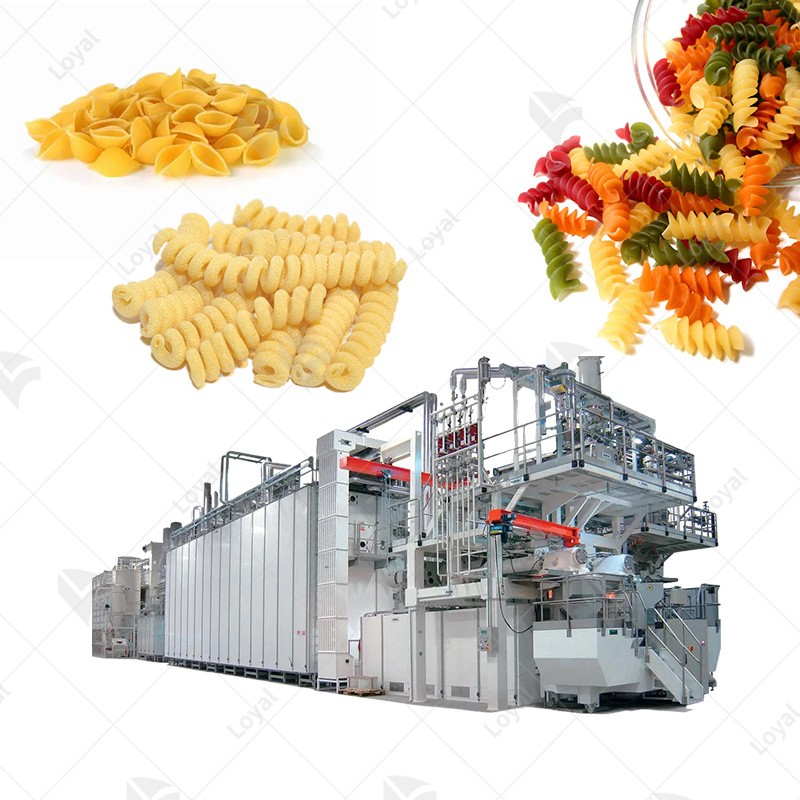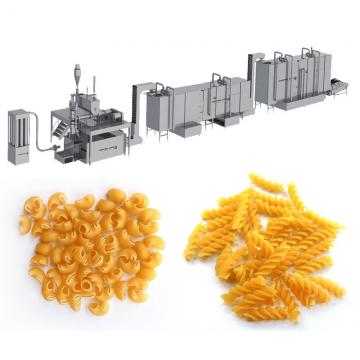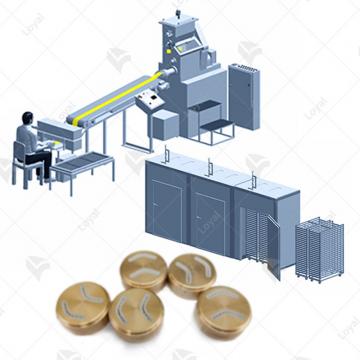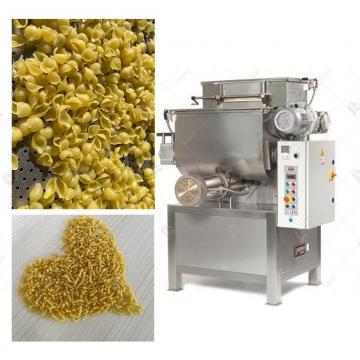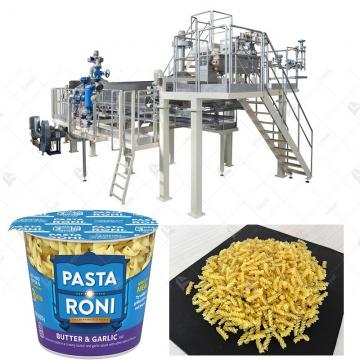Elevate Your Pasta Production: Full Automation for Manufacturers with Energy Efficiency
Elevate Your Pasta Production: Full Automation for Manufacturers with Energy Efficiency
Introduction
The pasta manufacturing industry has witnessed significant transformations over the years, evolving from traditional methods to highly automated processes. In today's dynamic market, where efficiency and quality are paramount, pasta manufacturers are increasingly turning towards full automation to elevate their production capabilities.The Short-Cut Pasta Production Line technology of Shandong Luoya Industrial Co., Ltd. has introduced advanced technologies from Capitanio and HEMAKS .
Automation has become a cornerstone of modern production, offering numerous advantages to industries, including pasta manufacturing. The integration of advanced technologies not only streamlines processes but also enhances overall efficiency, leading to higher productivity and improved product quality.

Evolution of Pasta Manufacturing
Traditionally, pasta production relied on manual labor and semi-automated processes. However, the advent of automated technologies has revolutionized the industry. Automated processes, with their precision and speed, have significantly outpaced traditional methods, allowing manufacturers to meet the growing demand for pasta products.
The impact of automation on efficiency and quality in pasta manufacturing cannot be overstated. Automated systems ensure consistent production standards, minimizing variations and errors. This not only improves the overall quality of the pasta but also contributes to operational efficiency, making the manufacturing process more reliable.
Full Automation in Pasta Manufacturing
Pasta manufacturers embracing full automation are at the forefront of technological innovation. Cutting-edge technologies, such as robotic arms, automated extruders, and smart monitoring systems, are being employed to create a seamless and efficient production line.
The advantages of full automation are multifold. It not only accelerates the production process but also enhances precision and reduces waste. Manufacturers can achieve higher output with fewer resources, leading to cost savings. Additionally, the automated production line ensures the consistency of the pasta product, meeting the stringent standards set by reputable brands.
Energy Efficiency in Pasta Production
Energy plays a crucial role in pasta manufacturing, and the industry is recognizing the importance of sustainable practices to minimize environmental impact. The use of energy-efficient technologies is key to reducing the carbon footprint associated with pasta production.
Pasta manufacturers are actively implementing sustainable practices to conserve energy. From optimizing equipment efficiency to utilizing renewable energy sources, the industry is committed to reducing energy consumption. This not only aligns with environmental responsibility but also contributes to long-term cost savings.
Case Studies
Leading pasta manufacturers, including industry giants like Barilla, De Cecco, Creamette, San Giorgio, and Great Value, have successfully embraced full automation. Their success stories serve as a testament to the positive impact of automation on efficiency, product quality, and brand reputation.
Examining the achievements of pasta manufacturers in energy efficiency showcases the tangible benefits of sustainable practices. These achievements not only contribute to a greener planet but also position the brands as responsible industry leaders.
Challenges and Solutions
While the benefits of full automation in pasta manufacturing are evident, there are challenges in the implementation phase. Manufacturers may face resistance to change, initial high costs, and the need for employee retraining. Addressing these challenges requires a strategic approach, including effective change management and gradual implementation to ensure a smooth transition.
In the quest for enhanced energy efficiency, pasta manufacturers are exploring innovative solutions. This includes the development of energy-efficient machinery, implementation of intelligent monitoring systems, and ongoing research into sustainable energy sources. These initiatives not only address current challenges but also pave the way for a more sustainable and resilient industry.

Future Trends
The future of pasta manufacturing holds exciting possibilities with the emergence of cutting-edge technologies. Robotics, artificial intelligence, and data analytics are expected to play a more significant role in optimizing production processes. These advancements will further elevate the efficiency and precision of pasta manufacturing.
Anticipated developments in energy-efficient practices include the integration of renewable energy sources, advancements in energy storage solutions, and the implementation of circular economy principles. As the industry continues to evolve, pasta manufacturers are poised to lead the way in adopting sustainable practices that go beyond compliance.
Conclusion
In conclusion, the integration of full automation in pasta manufacturing brings forth a myriad of benefits. From improved efficiency and product quality to energy conservation and sustainability, manufacturers that embrace automation are positioned for long-term success. The collaboration between technological innovation and energy-efficient practices sets the stage for a resilient and forward-thinking industry.
Looking ahead, the future outlook for pasta manufacturers is promising. As the industry navigates challenges and embraces advancements, it is clear that the synergy of automation and energy efficiency will continue to drive innovation. Pasta manufacturers will play a pivotal role in shaping a sustainable and thriving future for the entire food processing machinery sector.
FAQs: Common Inquiries about Pasta Manufacturers
1. What are the Key Considerations when Choosing Automated Systems for Pasta Manufacturing?
When selecting automated systems, pasta manufacturers should prioritize scalability, ease of integration, and compatibility with existing infrastructure. Additionally, considering the adaptability of the system to future technological advancements is crucial to ensure a sustainable investment.

2. How Do Pasta Manufacturers Ensure Consistent Quality in Automated Production?
Maintaining consistent quality in automated production involves rigorous quality control measures. Advanced sensors and monitoring systems are employed to detect variations, and real-time adjustments are made to ensure each batch meets the high standards set by pasta manufacturers.
3. What Role Does Energy-Efficient Machinery Play in the Overall Sustainability of Pasta Manufacturing?
Energy-efficient machinery significantly contributes to the sustainability of pasta manufacturing. By reducing energy consumption and utilizing renewable sources, manufacturers can minimize their environmental impact and operate in a more environmentally responsible manner.
4. Are Small-Scale Pasta Manufacturers also Embracing Full Automation?
Yes, even small-scale pasta manufacturers are recognizing the benefits of full automation. Modular and scalable automation solutions allow smaller producers to adopt automated processes that align with their production capacity, enabling them to compete effectively in the market.

